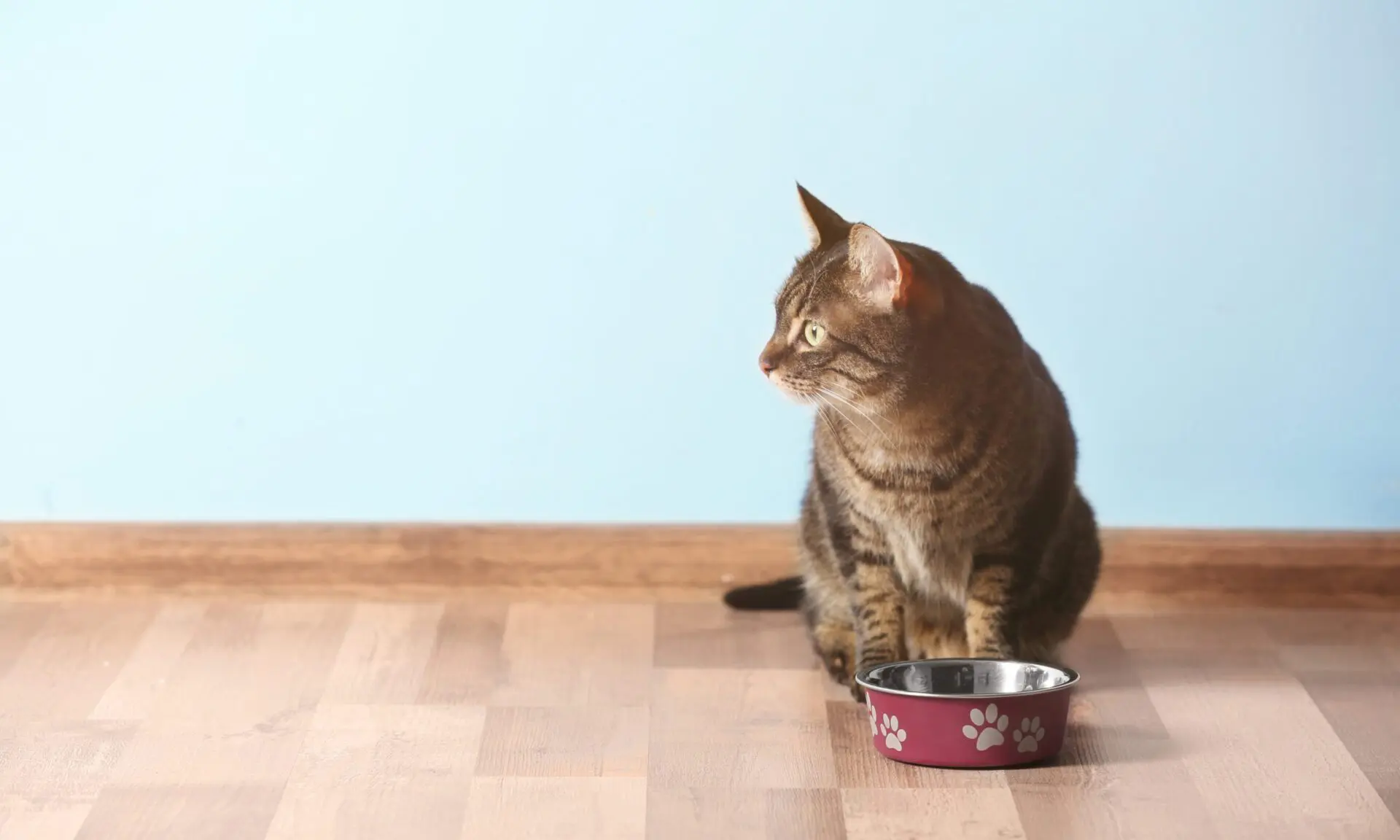The gut is the source of many common pet ailments, from itchy skin to foul odors to runny stools. That’s why when your dog or cat displays these telltale signs of digestive issues, a better diet can fix what’s peeving your pet!
Diet can bring your four-legged friend much-needed relief from symptoms from an allergy or sensitivity to a food ingredient. A higher-quality diet can be improve your pet’s ability to digest food, and absorb the key nutrients they need to be healthy and feel good.
If your otherwise healthy pet seems uncomfortable in their own skin, has ongoing tummy issues, or is a picky eater, read on. The following explains how dietary changes can make a difference in your pet’s life and make your life together much happier.
Is your pet’s diet causing tummy troubles?
An ill-timed doggy stink bomb is a sure-fire mood killer. So are messy accidents at the dog park. If these stinky events disrupt your quality time together more than you would like, the first thing you want to think about is this: What are you feeding your pet? Consider the following culprits:
- Low-quality pet food: If you’re like many pet parents, you’re picking up bags and cans of pet food at a nice price at your favorite grocery store. But over time, bargain brands can be costly to your pet’s overall well-being. These offer little more than a low-quality diet, filled with ingredients and byproducts that cause tummy issues in your four-legged friend. Your first step to reversing this is a visit to your local pet supply store. Look for a shop with a focus on holistic-minded approaches to pet wellness to help you find the best diet for your best friend.
- Too many treats: If your pet is getting lots of table scraps, it’s time to put an end to it. Even if the foods you dole out are deemed safe for dogs, they could very well be prepared with oils and other ingredients that create discomfort in your dog’s gut. Even if you stick to reaching for the bag of dog treats, overdoing it can also cause problems.
- Protein allergy: Gas and loose stools can be symptomatic of an allergy or sensitivity to a dog food ingredient. Most frequently, they stem from a specific protein source, especially beef, dairy, lamb, egg, chicken, soy, pork and fish, according to the American Holistic Veterinary Medical Association. However, many pet parents find transitioning to a diet featuring a more easily digested protein (or carb) source clears things right up. For example, a diet featuring duck as a protein and oatmeal as a carb works extremely well for sensitive and upset stomachs. One to try is the Pure Vita Duck and Oatmeal diet, which is found at independent pet supply stores.
- A microbial imbalance: A diet rich in probiotics can establish a colony of “good” bacteria in the gut, improving your pet’s digestive process. When shopping for a pet food formula with probiotics, look for a minimum of 80 million colony-forming units (CFU) per pound. Since, probiotics need “food” in the form of insoluble fiber in order to get established and thrive, look for brands that also feature prebiotics.
Frequently, switching to a higher-quality diet is the most effective solution to overcome your pet’s gas and tummy issues. If switching foods doesn’t solve the problem, the next step is turning to your holistic vet for guidance.
Is your cat’s food making litter box odors worse?
When living with cats, you expect to live with at least some litter box odor. Even with regular scooping and strategic out-of-the-way box placement, most owners would love to find a way to dial down the stench.
Do odors point to a poor diet? As explained by Raising Your Paws, a cat’s naturally high-protein diet can definitely be one source of the pungency. Cats eliminate excess protein through the kidneys, which raises that ammonia-laced stink factor.
Changing your cat’s diet can, however, help you win the war on litter box odors. Because diet, especially the ingredients in your cat’s food, can make a difference you (and your guests) will notice.
- Check your cat’s portions. Is kitty stealing bites from another pet’s dish? Whatever the cause, excess stool in a healthy cat points to overeating. When that happens, many undigested proteins and other good stuff will pass through and create more odor. Solve this by discontinuing free feeding and opt for scheduled feeding times.
- Another solution is switching to a premium diet. Premium diets are made from high-quality, nutrient-dense ingredients that can be more digestible in cats. When they’re rich in prebiotics and probiotics, your cat can digest foods more completely, which will improve unwanted litter box odors.
- There’s one natural ingredient that’s been proven effective in reducing fecal odors and ammonia smells: Yucca schidigera is safe for cats and other animals, and many pet parents have seen a noticeable reduction in odors after they incorporated it into their cat’s diet.
How can diet bring relief to your pet’s itchy skin?
Dry skin can make life uncomfortable for your cat or dog. Flakiness, a dull luster on their coat, excess scratching and paw licking can all point to skin issues. After ruling out external factors, dietary solutions often offer relief for your furry friend.
- First, make sure your pet’s diet has the right blend of omega-3 and omega-6 fatty acids to promote healthy skin and a healthy coat. For dogs, the recommended essential fatty acid ratio is 4:1 omega-6 to omega-3. However, the ratios found in grocery store dog food brands are often a far cry from that. The 20:1 ratio ensures an omega-3 deficiency. And this brings us to yet another reason to steer clear of brands with a high amount of corn ingredients: Corn can send the essential fatty acid ratios to 50:1 or even higher!
- Switching to a limited-ingredient diet with a single source of protein can bring relief to pets with allergies or sensitivities to certain ingredients. After a few weeks on this diet, you should start seeing results — less scratching and paw-licking, and more luster on the coat.
- Finally, changing to a premium diet can be a simple solution to reversing itchy skin. Good food nourishes the whole body, inside and out, and that begins with, of all places, the gut.
A healthy gut can build a healthy immune system and reduce the likelihood of allergies and inflammation — even those that show up in the form of itchy skin. To build a healthy gut and a healthy body, look for prebiotics and probiotics on the label.
What to do if your pet won’t eat?
It may seem rare, but it’s not unusual for some pets to leave food in the bowl. If your pet’s eating habits change suddenly, you’ll want to carefully rule out other causes, such as stress from major life changes, an illness … or a large increase in treats!
Otherwise, try adding a few spoonfuls of wet food to dry kibble. The cuts of meat and gravy can appeal to their keen sense of smell and taste buds. To boost the aroma, try warming it in the microwave, but just for a few seconds.
To keep your finicky eater healthy, switching to a premium brand can be a smart solution. For example, most grocery store brands have a suggested serving of five cups or more for a 100-pound dog. More food gives your pet more to digest (and more for you to pick up in the yard). Nutrient-rich premium brands, however, only require 3-4 cup servings for a 100-pound dog. Not only does your dog get more of the good stuff with every bite, you can feed your dog at a better value.
Discover the Good 4 Life Benefits
At NutriSource, we prepare each batch so that every serving gives your pet all the nutrients they need to build a healthy body: healthy skin, fewer odors, more energy. When you factor in the health benefits, we offer a great value. Pet parents have tried it and they love the results.
In addition to using better ingredients, each bag and can contains Good 4 Life, an exclusive blend of supplements that offer your dog or cat all the minerals and probiotic nutrients they need to build a healthy gut and a healthy body.
- Probiotics and prebiotics: Probiotics fosters colonization of good bacteria in the intestinal tract, which promotes better absorption of nutrients, and reduces foul odors. Prebiotics cleans the gut and removes fecal moisture to promote healthy absorption of nutrients to end runny stools. It also helps cats pass hairballs without vomiting.
- Trace minerals that are essential to your pet’s health come in an organic form that’s more bio-available to your pet. These aid digestion, maintain healthy skin and support the immune function.
- Organic selenium yeast provides antioxidants that neutralize free radicals in the bloodstream and aid immunity.
- Yucca extract reduces gas emission in cats by 30-50%, reducing unpleasant litter box odor.
Discover more benefits Good 4 Life offers your pet, and look for NutriSource at your local, independent pet supply retailer.


